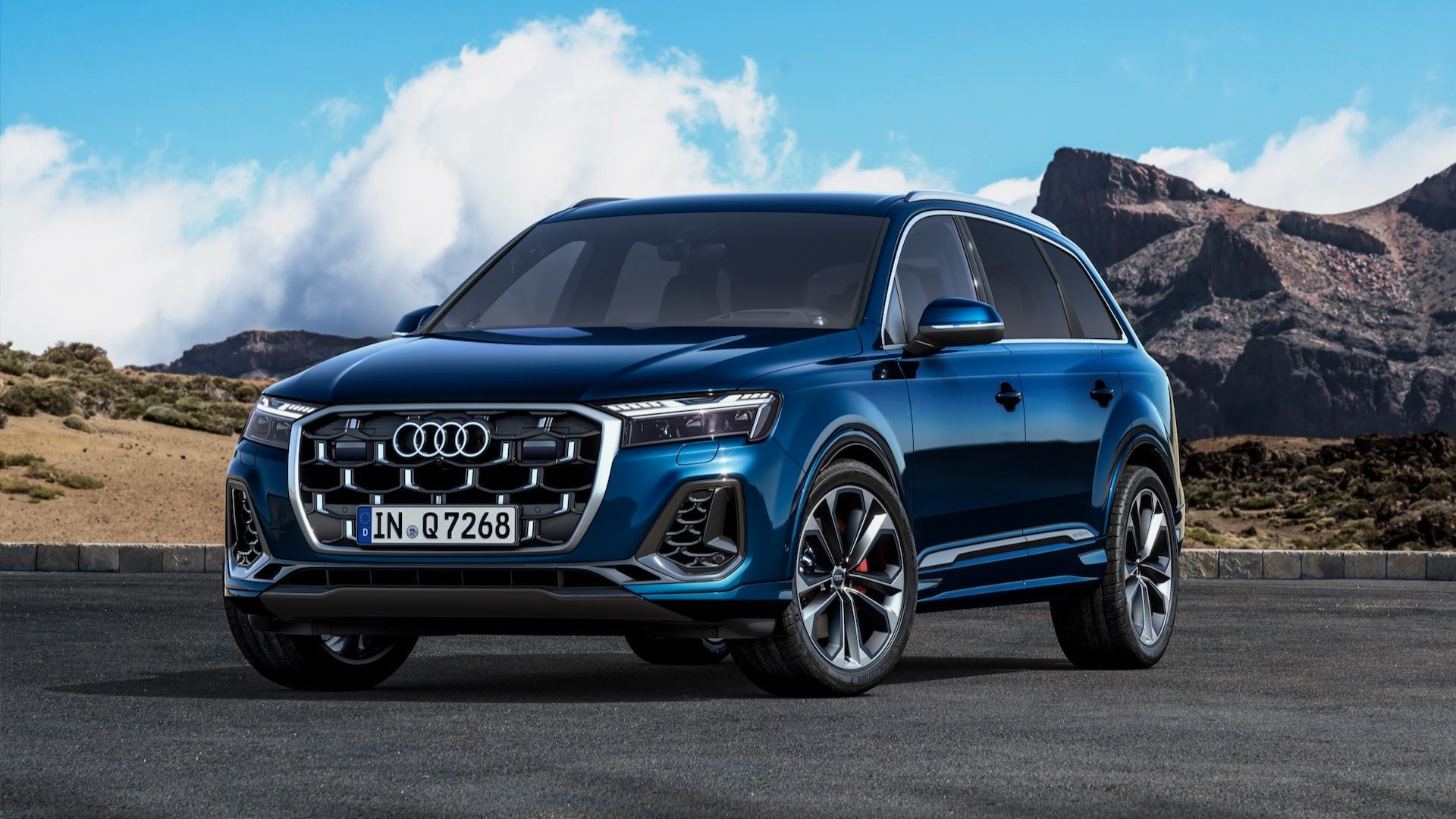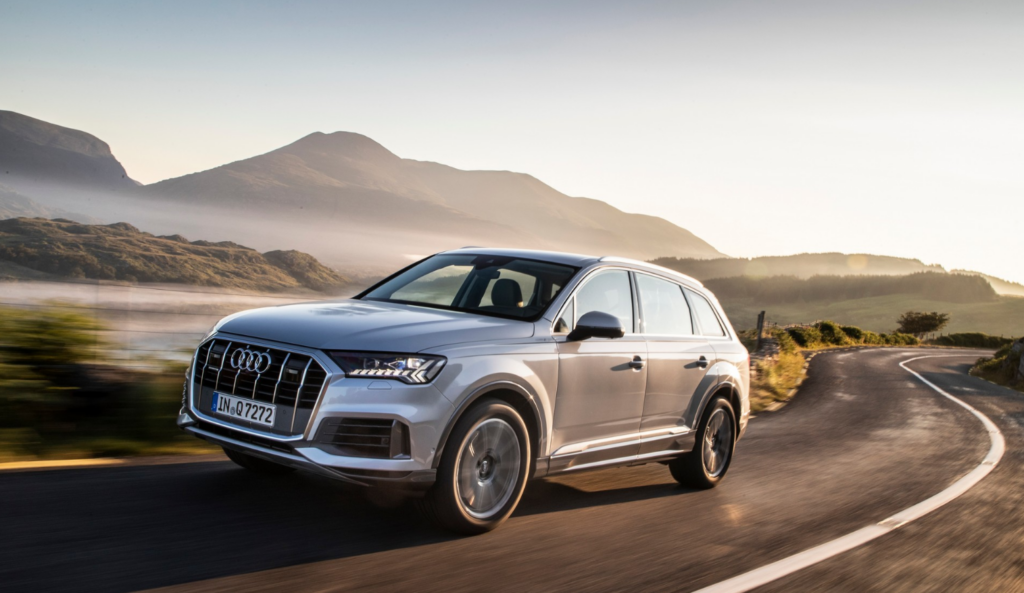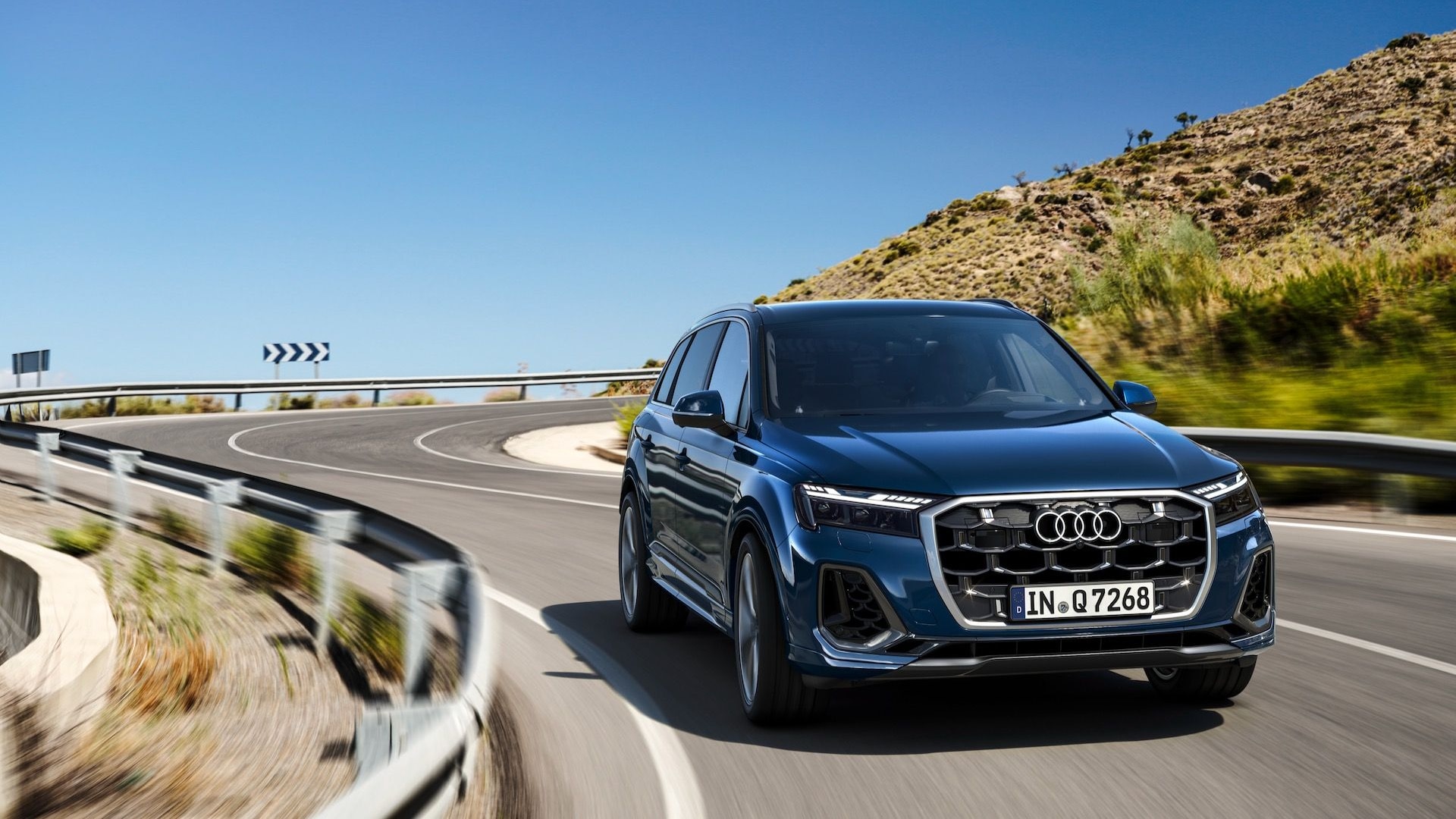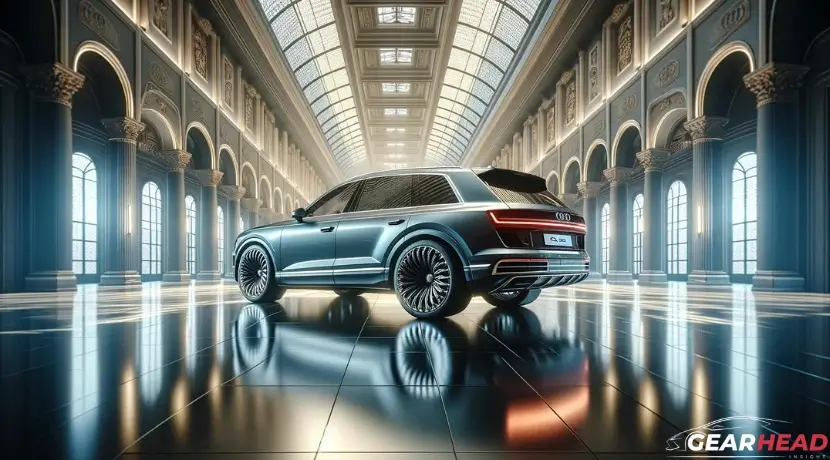The Audi Q7 In 2025: A Look At The Future Of Performance And Luxury

The Audi Q7 in 2025: A Look at the Future of Performance and Luxury
The Audi Q7, a mainstay in the luxury SUV segment, has always been synonymous with performance and refinement. As we approach 2025, the question on many minds is: what will the top speed of the next-generation Q7 be? While concrete figures are yet to be officially released, we can delve into the factors influencing its performance and speculate on the potential top speed based on current trends and advancements in the automotive industry.
The Evolution of the Q7: A History of Performance
The Audi Q7 first graced the automotive world in 2006, quickly establishing itself as a formidable contender in the luxury SUV market. Its initial iteration, powered by a 3.6-liter V6 engine, delivered a respectable top speed of 130 mph (210 km/h). The subsequent generations saw a steady progression in performance, with the introduction of larger engines, turbocharging, and even a hybrid powertrain.
The current Q7, launched in 2015, boasts a range of engine options, including a 3.0-liter TFSI V6 that pushes the top speed to 140 mph (225 km/h) in its most powerful configuration. This underscores Audi’s commitment to delivering a blend of luxury and performance that appeals to a diverse range of drivers.
Factors Shaping the 2025 Audi Q7’s Top Speed
Predicting the top speed of the upcoming Q7 requires considering various factors that will influence its performance. Here are some key areas to focus on:
1. Powertrain Advancements:
- Engine Technology: Audi is likely to continue its investment in refined and powerful gasoline and diesel engines. We can expect further advancements in turbocharging, direct injection, and cylinder deactivation technologies to optimize fuel efficiency while maintaining high power output.
- Hybrid and Electric Options: The move towards electrification is undeniable. The 2025 Q7 might offer a hybrid powertrain, combining a powerful gasoline engine with an electric motor, boosting both performance and fuel efficiency. A fully electric variant could also be on the horizon, offering near-silent operation and impressive acceleration.
- Software Optimization: Expect advanced software solutions to enhance powertrain efficiency and responsiveness. This could involve real-time adjustments to engine mapping, transmission gear changes, and even the electric motor’s output, optimizing performance across various driving conditions.
2. Lightweight Materials and Aerodynamics:
- Aluminum and Carbon Fiber: Audi has long been a proponent of lightweight materials. The 2025 Q7 could utilize increased amounts of aluminum and even carbon fiber in its construction, reducing overall weight and improving acceleration and handling.
- Aerodynamic Optimization: Sleek and aerodynamic design is crucial for minimizing drag and maximizing fuel efficiency. Expect a refined exterior with active aerodynamic elements, such as adjustable spoilers and air flaps, to optimize airflow at various speeds.
3. Advanced Chassis and Suspension:
- Adaptive Suspension: The 2025 Q7 will likely feature an advanced adaptive suspension system, allowing for real-time adjustments to damping and ride height based on driving conditions. This ensures optimal handling and comfort, even at high speeds.
- All-Wheel Drive: Audi’s renowned quattro all-wheel drive system will undoubtedly be present, providing exceptional traction and stability, crucial for maximizing performance and safety.
4. Safety and Regulations:
- Electronic Stability Control: Advanced electronic stability control (ESC) systems will be crucial for maintaining control at high speeds, ensuring driver safety.
- Speed Limits and Regulations: Legal speed limits and regulations will play a significant role in determining the practical top speed. While Audi might engineer a Q7 capable of exceeding 150 mph, it’s unlikely to be advertised or marketed as such due to legal and safety considerations.
Speculating on the Top Speed:
Based on the aforementioned factors and considering Audi’s commitment to performance, it’s reasonable to expect the 2025 Q7 to achieve a top speed in the range of 150-160 mph (240-257 km/h). This would be a significant leap from the current model’s top speed, showcasing the advancements in powertrain technology, aerodynamics, and chassis design.
However, it’s crucial to remember that the actual top speed could be influenced by various factors, including specific engine options, trim levels, and market regulations.
Beyond Top Speed: The Importance of Overall Performance
While top speed is a significant indicator of a vehicle’s performance, it’s not the sole defining factor. The 2025 Q7 will likely prioritize a holistic performance package, encompassing:
- Acceleration: Expect impressive acceleration figures, with the potential for a 0-60 mph time under 5 seconds for high-performance variants.
- Handling and Agility: The Q7 will need to handle with precision and agility, thanks to its advanced suspension, all-wheel drive, and precise steering.
- Fuel Efficiency: Audi will strive for improved fuel economy, particularly with hybrid and electric variants, balancing performance with environmental responsibility.
- Ride Comfort: Even at high speeds, the Q7 will prioritize a comfortable and refined ride, thanks to its advanced suspension and sound insulation.
The Future of the Audi Q7: A Blend of Luxury and Performance
The 2025 Audi Q7 promises to be a compelling blend of luxury and performance, offering a range of powertrain options, advanced technologies, and a sophisticated driving experience. While the exact top speed remains uncertain, the Q7 is poised to deliver a thrilling performance that surpasses its predecessors. As the automotive landscape continues to evolve, Audi’s commitment to innovation and refinement will undoubtedly play a key role in shaping the future of the Q7 and its place within the luxury SUV segment.







